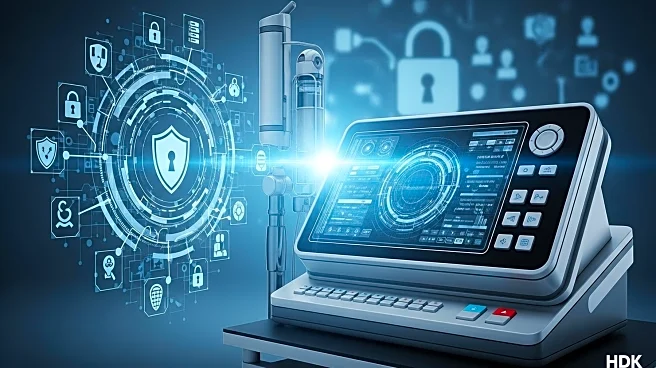What is the story about?
What's Happening?
The Food and Drug Administration (FDA) has intensified its regulatory oversight on medical device cybersecurity through the implementation of section 524B, added to the Federal Food, Drug, and Cosmetic Act in late 2022. This section mandates more stringent requirements for medical device companies to monitor and identify potential cybersecurity vulnerabilities. The FDA's approach has shifted from a cooperative stance to a more authoritative one, using its new powers to enforce compliance. This change is part of a broader effort to ensure that medical devices entering the market meet high cybersecurity standards, addressing concerns that the industry was not taking cybersecurity seriously enough.
Why It's Important?
The FDA's enhanced regulatory framework is significant as it directly impacts the medical technology industry, which must now adhere to stricter cybersecurity standards. This move is expected to improve the safety and reliability of medical devices, protecting patient data and healthcare systems from cyber threats. However, it also poses challenges for companies, particularly smaller ones, which may struggle with the increased regulatory burden and associated costs. The new requirements could lead to higher operational costs and potentially slow down the introduction of new medical devices to the market, affecting innovation and availability.
What's Next?
As the FDA continues to enforce these regulations, medical device companies will need to adapt by investing in cybersecurity measures and possibly restructuring their compliance strategies. The industry may see a consolidation as smaller companies find it difficult to meet the new standards. Additionally, there could be increased collaboration between the FDA and international regulatory bodies to harmonize cybersecurity standards globally. Companies will likely focus on training and hiring cybersecurity experts to meet the ongoing demands of the new regulatory environment.
Beyond the Headlines
The FDA's actions highlight a growing recognition of cybersecurity as a critical component of public health and safety. This shift may lead to broader regulatory changes across other sectors that rely on technology, emphasizing the importance of cybersecurity in protecting sensitive information and infrastructure. The long-term impact could include a cultural shift within the medical device industry towards prioritizing cybersecurity from the early stages of product development.















